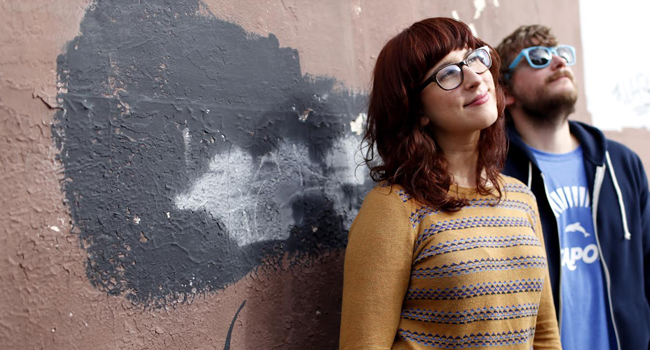 Sexy Baby Records was only founded a year ago, but since its beginning, the hard-rocking label has challenged the industry’s status quo. The company, one of few labels that still produce hard copies of albums, while much of the community has converted to completely digital tracks, remains grounded in tradition.
Sexy Baby Records was only founded a year ago, but since its beginning, the hard-rocking label has challenged the industry’s status quo. The company, one of few labels that still produce hard copies of albums, while much of the community has converted to completely digital tracks, remains grounded in tradition.
Digital is easy and convenient, but Jeremy “Germ” Lowe and his team of punk rock fans take extra effort to create something for fans to hold and bring home with them after a show. Record labels are important in many aspects of an artist’s career, so even as it becomes easier for music-makers to earn funding from allies online and make records on their own, Lowe reminds readers why labels like his are so crucial.
In a time where musicians only trust themselves to make the best tunes possible, record labels are often recognized merely as an option instead of a stark necessity.
Sexy Baby Records lays down a good defense for the relevance in its work. The dedication to the local arts scene and the love of good music is dignified, so the label’s steady output of good music and hard copy distribution has staying power. Though nothing is forever in the industry, Lowe and his team are on the right track for survival.
Pop ‘stache: What do you do at Sexy Baby Records?
Jeremy “Germ” Lowe: I founded Sexy Baby Records a little over a year ago and it was mainly because a record label that was supposed to put out my band’s CD was jerking me around and I didn’t want to treat people like that. So I decided just to put it out myself and start putting music out that people need to hear.
P’s: Where did your kick-ass name come from?
JL: When I initially thought about starting a record label, it was going to be something typical like “Germ 77” or something street punk-sounding, and I wanted something different. When I’m on stage and I’m talking to my audience, we have back and forth banter, and I always call my audience sexy babies. So when it came time to start my own label, we figured, “This is for my fans, this is for my friends, this is for the people I’m making music for. So why not call it what I call my fans? It’s gonna be called Sexy Baby Records.”
P’s: What’s unique about Sexy Baby Records?
JL: It’s a punk rock label that still does hard copies of CDs and vinyls. Labels are going under, and a lot stopped putting anything out besides digital distribution, because some music just doesn’t make money anymore. It’s hard work, and you’re gonna deal with the cost, but you love what you’re doing and if you feel the responsibility to your local music scene or the music scene in general, you’re going to keep doing it. So I think what sets us apart is the dedication to out city, our band and punk rock music.
P’s: Why did you choose to stay old-fashioned with hard copies while much of the industry went digital?
JL: Mainly because people still want it. There’s a good portion of the population that doesn’t want to just go on a computer and download a song by a band. When I go see a band live, I want to take something home with me. I want to be able to play that CD whenever I want to and look at the artwork and hold it in my hands. It’s just so much more real and that’s why we kept it that way and we’re gonna keep it that way.
P’s: With the DIY age, a lot of people are constantly doing things on their own and making Kickstarter projects outside of record labels. How do you feel about that enterprise?
JL: Good for them! It’s a cheap, easy way to do it and if that’s what they can do–they don’t want a record label, they don’t want anybody else but their hands in the mix–then you know, good for them.
It’s hard to get your music out there and I’m all for bands doing what they can do. If a band is good and they want to get signed to a label, then that’s cool, too.
P’s: A lot of people argue that record labels are becoming less relevant though because of this DIY movement. Would you disagree with them?
JL: I definitely disagree with them because it’s not that it’s not relevant, it’s the fact that you can do a lot of stuff on your own but you need a helping hand to get your records in stores. A lot of people just aren’t motivated. Digital is easy. You can sign up, download or upload, and boom! it’s there. But to put the footwork in with the phone calls and everything else, that’s what a label is there to do: help people out and they learn to help themselves.
P’s: How has the label changed in the past year?
JL: Since I started about a year ago, what I’ve noticed that’s changed is that people have taken notice of us. They’ve seen what we’re doing and I put out my band’s (Modern Day Rippers) CD, I put out the Vigilance CD, but then recently bigger bands have been coming to us and asking for us to put out their music. It’s really given us more creditability as a business and it’s really exciting.
P’s: What do you think it’ll take for Sexy Baby to stick around?
JL: Keep signing bands that’ll stick around and keep moving forward. Not looking back. Keep helping out bands that need the help and keep taking on bands that want to work with us.
P’s: Do you think there’s a specific connection between your label and Chicago?
JL: Definitely. We started underground, we know a lot of people here and we want the bands in Chicago to be heard outside of Chicago and outside of America. We want everybody to appreciate the music Chicago makes.



